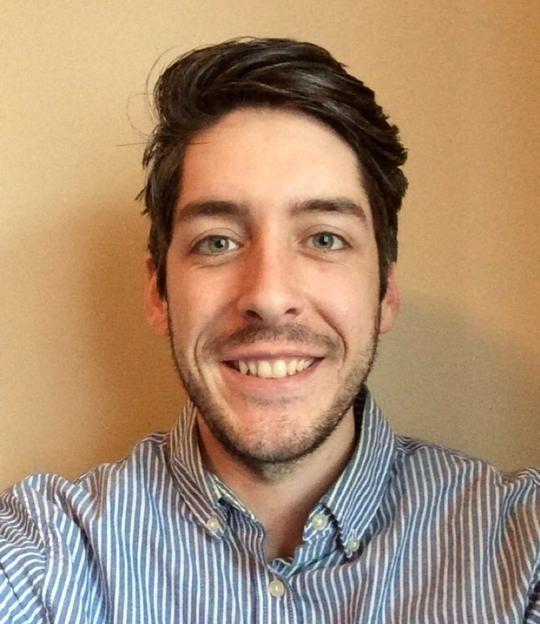OCPD vs. OCD: What’s the Difference?
OCPD and OCD may share similar names and symptoms, but there are some key differences between these two mental health conditions. Obsessive-compulsive personality disorder relates to an obsession with perfectionism and following strict rules in life, while obsessive-compulsive disorder is characterized by uncontrollable obsessions and compulsions.
Knowing the differences between OCD and OCPD can help you determine whether you or a loved one may be suffering from either of these disorders. Understanding what treatment options and support services are available is also important, as these resources can help you manage your mental health symptoms in more effective ways.
What Is Obsessive-Compulsive Personality Disorder (OCPD)?
Obsessive-compulsive personality disorder (OCPD) is a personality disorder that causes someone to be constantly preoccupied with being perfect. Someone with OCPD does not just expect perfection in themselves — they also expect it in the things and people around them.
OCPD can be an all-consuming part of someone’s life. People with OCPD are always expecting things to be perfect, and when they are not, it can cause a lot of distress. OCPD can cause someone to feel like they always need to be in control or that many responsibilities fall on them.
OCPD Symptoms
On the surface, people with OCPD may not seem to have anything wrong with them. They tend to present as high achievers who are very caring due to their attention to detail. Although these are positive characteristics, they can also be symptoms of high-functioning OCPD.
Common symptoms of OCPD include:
- Perfectionism to a detriment
- Inability to be flexible
- Overly controlling in relationships and work
- Will not share tasks with others
- Always thinking about the rules
- Hoarding
- Heavily focusing on small details
- Using a lot of lists for tasks
- Lack of emotion in relationships
- Not being generous due to the need for control
What Causes OCPD?
OCPD can occur for a few different reasons, and there is no one specific thing that causes someone to develop OCPD. There are both genetic and environmental circumstances that can make someone more prone to a mental health disorder like OCPD.
OCPD can develop from an overly strict childhood with parents who demanded perfection or did not show love or compassion unless it was related to an achievement. This type of reward-focused parenting can cause a child to grow up thinking they are only deserving of attention if they are perfect.
OCPD may also have a genetic factor. Someone who has family members with personality disorders, anxiety or depression may be at a higher risk for developing OCPD. If you are diagnosed with an anxiety disorder, you may also be more likely to develop OCPD.
OCPD Risk Factors
There are also several other risk factors for OCPD. Both age and gender can be determining factors in whether someone may develop OCPD. OCPD is more common in late adolescence and young adulthood, and it is also more common in men.
Other risk factors for OCPD include:
- Pregnancy and postpartum
- Genetics
- Co-occurring mental health conditions
- Stressful life changes
OCPD Treatment
Psychotherapy can be a very helpful treatment option for OCPD. This includes techniques like cognitive behavioral therapy, which helps patients to challenge thoughts and feelings that lead to unwanted behaviors. Talk therapy can also help manage OCPD symptoms by teaching healthy and effective coping mechanisms.
Medication is another treatment option for OCPD. Selective serotonin reuptake inhibitors (SSRIs) are a common type of medication prescribed to those who have OCPD and other personality disorders. SSRIs work to help reduce OCPD symptoms like perfectionism-related anxiety so that people can function better in daily life.
Meditation and relaxation can also be helpful tools for managing the symptoms of OCPD. By using breathing techniques and developing a mindfulness practice, people with OCPD can de-escalate obsessive or perfectionist thoughts and reduce their reactions to these thoughts and feelings.
Prognosis for OCPD
OCPD is believed to have a more positive prognosis than other personality disorders. The condition has been found to be treatable with a combination of psychotherapy and medication. However, a person must be willing to fully commit themselves to the treatment process in order for these interventions to be effective.
What Is Obsessive-Compulsive Disorder (OCD)?
Obsessive-compulsive disorder (OCD) is an anxiety disorder that causes an individual to have constant obsessive, repetitive and intrusive thoughts and behaviors. People with OCD may feel like they are unable to control their compulsions or obsessions, and they often report feelings of anxiety and depression related to their uncontrollable behaviors.
OCD interferes with everyday life and the ability to get simple tasks done. Someone with OCD may have to perform a ritual or repeat a phrase a certain amount of times before they can complete a task. These rituals make the symptoms of OCD feel better momentarily, but they quickly return.
Obsessions vs. Compulsions
Obsessions are repetitive thoughts, feelings, urges or mental images that someone is unable to control or stop. Obsessions often cause anxiety and tend to revolve around something potentially bad happening. Common obsessive thoughts can be about illness or death, losing control, harm, religious thoughts and unwanted sexual thoughts. Examples of obsessive thoughts can include:
- Fear of germs
- Fear of death
- Fear of doing something to harm oneself or others
- Fear of sexual impulses or images in one’s mind
- Intense superstitions or rituals
Compulsions are actions or rituals that someone does to help them ease their anxiety over obsessive thoughts. Someone with OCD believes that doing these rituals will counteract their obsessive thoughts. For example, someone who is afraid of germs may wash their hands for exactly five minutes each time, using the same soap and the same bathroom.
Some common compulsions include:
- Excessive cleaning
- Obsessive rituals, such as tapping or knocking a certain number of times
- Repeated checking on things, such as making sure doors are locked or the oven is off
- Needing objects to be in a certain order or way
What Causes OCD?
There is no one known cause for OCD, but there are certain factors that may play into the development of OCD. Things such as genetics, brain chemistry, biology and having a family member with OCD or another mental health disorder may increase the likelihood someone develops OCD.
OCD Risk Factors
Both age and gender play a role in determining if someone is at higher risk for OCD. Teens and young adults are more likely to be diagnosed with OCD, and the same is true for men. OCD can also run in families. If a close relative has OCD, other family members are at higher risk of developing OCD.
Other factors that can increase risk for OCD include:
- Mental health conditions (depression, anxiety, tourettes, ADHD)
- Stress
- PANDAS (pediatric autoimmune neuropsychiatric disorders associated with streptococcal infections)
- Pregnancy and postpartum
OCD Treatment
Therapy is a great option for the treatment of OCD. Specifically, cognitive behavioral therapy (CBT) can help someone with OCD reframe their obsessive and compulsive thoughts and feelings to change their behavior. Exposure and response prevention (ERP) is another type of therapy that exposes someone to the thing they are afraid of so that they can process their fear and response with a trained professional.
Deep brain stimulation (DBS) is a surgical treatment that uses electrical impulses to stimulate the part of the brain that is affected by OCD. A scan of the brain locates the area causing symptoms, and electrodes are put in that area. A neurostimulator that delivers mild signals to help manage severe OCD symptoms is also implanted.
Transcranial magnetic stimulation (TMS) is a newer treatment for OCD that is not well-managed by medication or therapy. TMS is a non-invasive way of stimulating the brain, unlike DBS. For TMS, a patient has a device pressed to the outside of their head, and the device passes currents through to the brain to help change brain activity. This treatment also targets areas of the brain that are involved in OCD behavior.
Prognosis for OCD
OCD is a treatable mental health diagnosis, but it is also a chronic illness. Many who are diagnosed with OCD will have to manage it throughout their lifetime. Other factors, such as age of diagnosis, gender and general support for symptom management, can all determine if someone will have recurring OCD throughout their life.
The combination of medication and psychotherapy treatment has an overall positive effect on reducing OCD symptoms, but full remission of OCD is not very common.
OCPD vs. OCD: What’s the Difference?
Although OCD and OCPD sound similar and both refer to mental health disorders that deal with obsessive thoughts and behaviors, they are not the same. OCD is an anxiety disorder and OCPD is a personality disorder.
OCD focuses on obsessive and compulsive thoughts, feelings and behaviors related to a variety of things. Someone with OCD is usually aware of their irrational thoughts and behaviors. Those with OCD are more likely to get treatment for their disorder, as they are aware of the impact it has on themselves and others.
OCPD is directly related to perfectionism. There is a large lack of self-awareness with OCPD, and people with OCPD thrive in their perfectionism, rigidity, lists and attention to detail. OCPD affects the friends and loved ones of someone diagnosed with this personality disorder, as the hard standards and rules someone with OCPD has apply to everyone and everything around them as well.
Do You Struggle With OCD or OCPD?
Do you or a loved one struggle with OCD or OCPD? Are you unsure if your thoughts and behaviors can be diagnosed as one or the other? The Nobu app is a great place to learn more about both disorders and see what treatment is available.
The Nobu app is a free and easy-to-use tool that is a great resource for those with OCD or OCPD. Nobu has mindfulness exercises, writing prompts, guided mental health lessons and more. For an additional fee, you can also connect with a licensed mental health professional for teletherapy sessions. If you are suffering from OCD or OCPD, download the Nobu app today and find the care and support you need.

Edited by – Jonathan Strum
Jonathan Strum graduated from the University of Nebraska Omaha with a Bachelor’s in Communication in 2017 and has been writing professionally ever since. He has written, edited and published content for health care professionals, educators, real estate agents, lawyers and high-level university faculty… Read more.

Written by – Danielle Boland
Danielle is a licensed clinical social worker, currently living and practicing in central Connecticut. Danielle graduated from Columbia University in 2012 with a Masters of Social Work, and always had the goal of opening her own private practice. She specializes in women’s issues, maternal health and postpartum mental health. Danielle is passionate about empowering people of all ages and hopes to use her writing skills to provide more resources for those looking to improve their mental health… Read more.

Medically Reviewed by – Dr. Angela Phillips
Angela is a licensed therapist and clinical researcher, and has worked in public, private, government, and not-for-profit organizations, across clinical and research-oriented roles. Angela’s clinical and research experience has included suicide prevention, cognitive behavioral… Read more.
- U.S. National Library of Medicine. “Obsessive-compulsive personality disorder.” MedlinePlus, November 7, 2020. Accessed May 22, 2022.
- International OCD Foundation. “Obsessive-Compulsive Personality Disorder (OCPD).” 2010. Accessed May 22, 2022.
- Rowland, Tobias; et al. “Living with obsessional personality.” BJPsych bulletin, December 2017. Accessed May 22, 2022.
- Alex, Rajesh; et al. “Psychological interventions for obsessive-compulsive personality disorder.” The Cochrane database of systematic reviews, May 12, 2010. Accessed May 22, 2022.
- Stanford Medicine. “Obsessive-Compulsive.” Accessed May 22, 2022.
- U.S. National Library of Medicine. “Obsessive-Compulsive Disorder.” MedlinePlus, February 23, 2021. Accessed May 22, 2022.
- International OCD Foundation. “How Is OCD Treated?” Accessed May 22, 2022.
- Mount Sinai. “Brain Stimulation for OCD.” Accessed May 22, 2022.
- International OCD Foundation. “Transcranial Magnetic Stimulation (TMS) for OCD.” Accessed May 22, 2022.